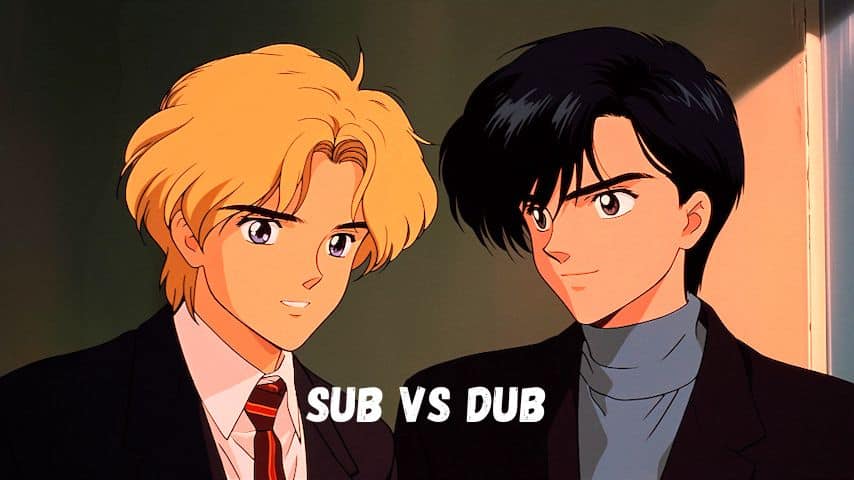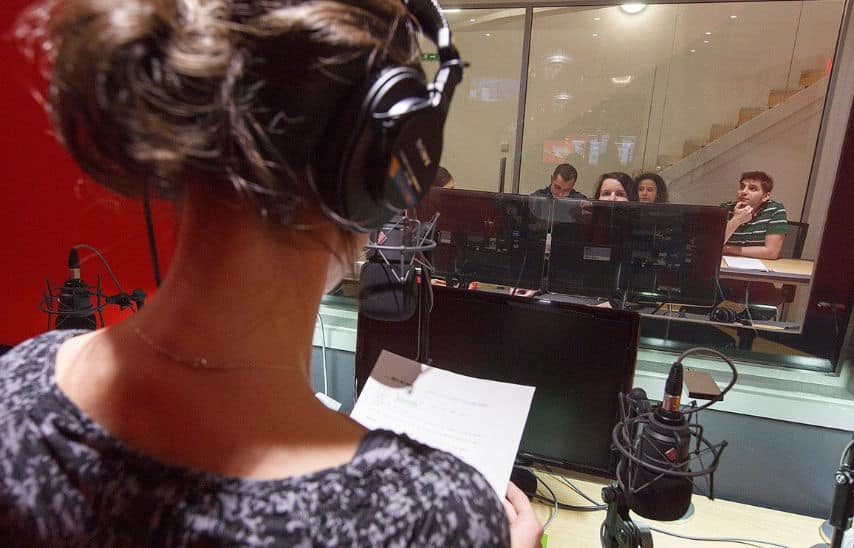In the world of video games, the line between fiction and reality blurs as players embark on epic adventures, face formidable foes, and forge indelible connections with virtual characters. Central to this immersive experience is the art of voice acting, a craft that breathes life into these digital worlds and infuses them with emotions, personality, and depth.
For game developers and clients, the significance of voice acting cannot be overstated. The right voice can turn a mere character into an iconic figure, etching itself into the annals of gaming history. It is the voice that resonates in players’ hearts, evokes emotions, and guides them through intricate narratives. Voice acting transforms the pixels and polygons on the screen into living, breathing beings, fostering an emotional bond between players and the game.
However, while the importance of voice acting in gaming is clear, it brings forth a unique challenge: understanding and negotiating video game voice over rates. In this complex landscape, game developers and clients often find themselves navigating uncharted waters, grappling with questions that can profoundly impact their projects. How much should a talented voice actor be compensated? What factors influence these rates? How can we ensure fairness for both creators and the voices behind the characters?
This article serves as your guiding star in deciphering the enigma of video game voice over rates. We will embark on a journey through the intricate facets of this world, unveiling the key determinants of these rates, offering insights tailored to the specific needs of game developers and clients, and equipping you with the knowledge to navigate the challenges that lie ahead.
So, prepare to embark on a quest of discovery as we delve into the world of video game voice acting, a realm where voices hold the power to shape extraordinary experiences and where understanding rates is the key to unlocking gaming greatness.
Table of Contents
ToggleFactors Influencing Video Game Voice Over Rates:
In the realm of video game voice over, rates are influenced by a multitude of factors. Game developers and clients must navigate this labyrinth to determine fair compensation for the voices that will breathe life into their virtual worlds. Let’s embark on a journey through the factors that shape video game voice over rates, from the perspective of those who create and commission these games.
Experience and Skill Level of the Voice Actor
One of the most prominent factors affecting voice over rates is the experience and skill level of the voice actor. Just as in any profession, seasoned professionals with a proven track record often command higher rates. Their ability to convey emotions, capture character nuances, and deliver impeccable performances earned through years of experience adds undeniable value to a project. For game developers and clients, the assurance of a polished and compelling voice performance may come with a higher price tag.
Project Scope and Budget
The scope and budget of a video game project are pivotal in determining voice over rates. Larger-scale games with expansive worlds, intricate narratives, and a multitude of characters naturally require more substantial budgets for voice acting. Game developers must carefully consider how the project’s magnitude aligns with budget allocations for voice actors. A project’s budgetary constraints can directly influence the compensation offered to voice actors, as developers seek to balance quality with financial viability.
Length and Complexity of the Script
The script’s length and complexity are critical factors influencing rates. Voice actors are often paid per project or per recording session, so longer scripts or scripts filled with intricate dialogue may result in higher compensation. The level of acting skill required to bring complex characters to life also factors into the rate. Game developers and clients must assess the script’s intricacy and the emotional depth demanded from voice actors to arrive at appropriate compensation.
Genre of the Game
Different game genres demand distinct vocal skills and character portrayals. For instance, a fantasy role-playing game may require epic heroics, while a horror game relies on spine-tingling fear. The genre of the game can significantly impact voice over rates, as specialised skills may be required. Voice actors capable of conveying the essence of a particular genre may be in higher demand, affecting their rates accordingly. Game developers and clients must consider the genre’s unique demands when setting voice actor compensation.
Non-disclosure Agreements (NDAs) and Exclusivity
In some cases, voice actors may be asked to sign non-disclosure agreements (NDAs) or exclusivity agreements. These legal contracts can affect rates as they may restrict the voice actor from taking on other projects during a specified period or sharing details about the game. Compensation often reflects the limitations imposed by such agreements. Game developers and clients should be prepared to adjust rates to accommodate the exclusivity and confidentiality requirements outlined in NDAs, acknowledging the impact on a voice actor’s career.
Union vs. Non-union Rates
The distinction between union and non-union rates is another crucial consideration in video game voice over. Unionised voice actors, who are members of professional actors’ unions such as SAG-AFTRA (Screen Actors Guild – American Federation of Television and Radio Artists), often command higher rates. These rates are subject to collective bargaining agreements and are generally considered industry standards. However, non-union voice actors may offer more flexibility in negotiations and potentially lower rates. Game developers and clients must decide whether to work with union or non-union talent, considering the budget constraints and industry standards that each option entails.
In the intricate dance of video game voice over rates, these factors intertwine to determine the compensation a voice actor receives for their contribution to a game. For game developers and clients, understanding these factors is paramount in establishing fair and mutually beneficial agreements with the voices that will shape their virtual worlds.
Different Types of Video Game Voice Over Work and Their Impact on Rates
In the world of video games, the diversity of characters and narratives demands a wide range of voice over talents. Each role, whether it be a heroic protagonist or a menacing creature, contributes uniquely to the gaming experience. Let’s explore the different types of video game voice over work and their influence on rates, providing insights for game developers and clients as they navigate budget considerations.
Player Characters (Protagonists)
Player characters, often the heroes of the game’s story, hold a special place in the hearts of players. They are the avatars through which gamers immerse themselves in the virtual world. Voice actors who bring protagonists to life shoulder the responsibility of making the gaming experience memorable. Consequently, rates for these pivotal roles tend to be higher. Game developers and clients should allocate a significant portion of their voice acting budget to secure exceptional talent for player characters. Investing in a compelling protagonist can elevate the entire game’s narrative and player engagement.
Non-player Characters (NPCs)
Non-player characters (NPCs) populate the game world, providing depth, context, and interactions for players. While individual NPC roles may be shorter in duration compared to protagonists, the sheer quantity of NPCs in some games necessitates careful consideration of rates. Game developers and clients should be mindful of the cumulative cost when hiring voice actors for NPCs. In some cases, voice actors may offer bulk rates or negotiated fees based on the scope of NPC work. Balancing quality with cost-effectiveness is key when dealing with a multitude of characters.
Narrators and Announcers
Narrators and announcers play a crucial role in guiding players through the game’s narrative and providing essential information. They set the tone, offer context, and enhance immersion. Rates for narrators and announcers typically fall within a moderate range. While these roles may not require the extensive emotional range of protagonists, they demand clarity, professionalism, and the ability to engage the audience. Game developers and clients can expect competitive rates for these roles, reflecting their significance in creating a captivating gaming experience.
Creature and Monster Voices
Voicing creatures and monsters in video games presents a unique challenge that requires exceptional vocal versatility. These roles often involve creating otherworldly, frightening, or fantastical sounds that enrich the game’s atmosphere. Due to the specialised skill set required and the potential strain on vocal cords, rates for creature and monster voices can vary widely. Depending on the complexity and demands of the vocalisations, voice actors in these roles may command rates ranging from moderate to high. Game developers and clients should carefully assess the specific requirements of creature and monster voices when budgeting for these roles.
Voice overs for Cutscenes and Dialogue
Cutscenes and in-game dialogues are pivotal storytelling moments that provide players with context, emotion, and character development. Voice actors responsible for these segments must convey depth and authenticity in their performances. Rates for voice overs in cutscenes and dialogue segments typically fall on the higher end of the spectrum. The emotional depth and delivery required for these roles contribute to the rates. Game developers and clients should be prepared to allocate a significant portion of their voice acting budget to ensure impactful performances in these critical storytelling elements. The length and complexity of the script also influence compensation, as longer and more intricate dialogues may command higher rates.
Understanding the distinct roles that voice actors undertake in video games is essential for game developers and clients as they navigate rate negotiations. By recognising the varying demands and importance of each role, they can make informed decisions when budgeting and selecting talent, ensuring that the voices behind the characters enhance the gaming experience.
Typical Video Game Voice Over Rate Ranges
In the intricate world of video game voice over, rates vary depending on several factors, including the type of work, the experience of the voice actor, and the geographic location. Game developers and clients often seek a clear understanding of the typical rate ranges to budget effectively for their projects. Here, we provide an overview of the typical rate ranges for various types of voice over work in video games, using USD, EUR, and GBP for reference:
Player Characters (Protagonists)
Rates for voice actors providing voices for player characters, the heroes of the game’s narrative, can vary significantly. On average, rates can range from:
- USD: $130 to $500 per hour.
- EUR: €120 to €400 per hour.
- GBP: £100 to £350 per hour.
However, renowned voice actors with extensive experience may command higher rates, reaching up to $1,000 or more per hour for exceptional performances. These rates align with industry standards, and game developers and clients should be prepared to allocate a substantial portion of their budget to secure top-tier talent for player characters.
Non-Player Characters (NPCs)
Rates for voice actors providing voices for non-player characters (NPCs), who populate the game world, tend to be more moderate, reflecting the shorter duration of individual NPC roles. Typical rate ranges include:
- USD: $70 to $300 per hour.
- EUR: €60 to €260 per hour.
- GBP: £50 to £225 per hour.
Bulk rates or negotiated fees may apply when a significant number of NPCs require voice acting, providing potential cost savings. Game developers and clients should carefully assess the scope of NPC work to determine the appropriate compensation.
Narrators and Announcers
Voice actors in the roles of narrators and announcers, responsible for guiding players and setting the tone, usually command competitive rates. Typical rate ranges encompass:
- USD: $120 to $340 per hour.
- EUR: €105 to €300 per hour.
- GBP: £90 to £250 per hour.
These rates reflect the importance of clarity and professionalism in these roles. While rates are moderate, the value they bring to the gaming experience is undeniable.
Creature and Monster Voices
Voicing creatures and monsters in video games demands exceptional vocal versatility and creativity. Rates for these specialised roles can vary widely based on complexity and demands, ranging from:
- USD: $100 to $350 per hour.
- EUR: €90 to €300 per hour.
- GBP: £75 to £250 per hour.
Voice actors skilled in creating otherworldly or terrifying sounds may command higher rates. Game developers and clients should consider the specific requirements and complexity of creature and monster voices when budgeting.
Voice overs for Cutscenes and Dialogue:
Cutscenes and in-game dialogues are pivotal storytelling moments, requiring emotional depth and authenticity. Rates for voice overs in these segments typically fall within the higher end of the spectrum, with typical rate ranges including:
- USD: $120 to $480 per hour.
- EUR: €100 to €440 per hour.
- GBP: £90 to £400 per hour.
The length and complexity of the script also influence compensation, with longer and more intricate dialogues commanding higher rates. Game developers and clients should allocate a significant portion of their voice acting budget to ensure impactful performances in these critical storytelling elements.
These typical rate ranges provide game developers and clients with a framework for budgeting their video game voice over projects. It’s important to note that individual voice actors may have varying fee structures, and the specifics of a project can influence rates. Negotiating rates with clarity and transparency is key to reaching agreements that benefit both parties.
Negotiating Video Game Voice Over Rates:
Negotiating video game voice over rates is a crucial aspect of bringing gaming projects to life while ensuring fairness and mutual satisfaction. Whether you’re a game developer seeking the perfect voice for your characters or a client commissioning voices for your game, effective negotiation is key. Here, we offer tips for both parties on how to navigate rate discussions with professionalism and transparency.
For Game Developers Negotiating Video Game Voice Over Rates
- Conduct Comprehensive Research: Before initiating negotiations, research industry standards and typical rate ranges for the specific type of voice over work you require. Having a solid understanding of prevailing rates will empower you during negotiations.
- Assess Your Budget: Clearly define your project budget, including allocations for voice acting. Knowing your financial constraints will help you make informed decisions when negotiating rates. Be transparent with voice actors about your budget to manage expectations.
- Define Project Scope: Communicate the scope of the voice over work clearly. Provide voice actors with details about the number of characters, script length, and any special requirements. Clarity in project expectations fosters smoother negotiations.
- Consider Compensation Structure: Decide whether you’ll pay per hour, per project, or through other arrangements. Discuss this with potential voice actors and agree on a payment structure that aligns with your project’s needs and their preferences.
- Value Experience and Quality: While budget considerations are essential, remember that experienced and skilled voice actors often deliver exceptional results. Be prepared to invest in talent that can elevate your game’s storytelling and character portrayal.
For Clients Negotiating Video Game Voice Over Rates
- Open Communication: Initiate conversations with game developers early in the project to understand their needs, budget, and expectations. Establishing clear lines of communication fosters trust and collaboration.
- Research Your Market Value: Determine your worth in the industry by researching typical rates for your type of voice over work. This knowledge equips you to negotiate from a position of confidence and fairness.
- Flexible Negotiation: Be open to negotiating rates based on the project’s unique requirements. Consider factors such as exclusivity, NDA requirements, and project complexity when discussing compensation.
- Highlight Your Value: Emphasize your experience, versatility, and ability to enhance the gaming experience. Showcase how your skills align with the project’s objectives, making a compelling case for your rates.
- Professionalism is Key: Maintain professionalism throughout negotiations. Promptly respond to inquiries, provide requested materials, and meet agreed-upon deadlines. A professional demeanor enhances your reputation and fosters positive working relationships.
For Both Parties Negotiating Video Game Voice Over Rates
- Transparency and Clarity: Be transparent about your expectations, requirements, and limitations from the outset. Clearly communicate your needs and listen actively to the other party’s concerns.
- Negotiate Fairly: Strive for a mutually beneficial agreement that respects the value each party brings to the project. Avoid attempting to underpay or overcharge, as this can harm long-term working relationships.
- Collaboration Over Conflict: Approach negotiations as a collaborative effort rather than a conflict. Remember that both parties share a common goal: creating a captivating gaming experience. Collaboration yields better results than adversarial interactions.
- Put Agreements in Writing: Once rates are agreed upon, formalize the arrangement in a contract. The contract should outline payment terms, project scope, deadlines, and any other relevant details. This document ensures clarity and protects both parties.
Negotiating video game voice over rates is an art that involves understanding the intricacies of the industry, valuing talent, and fostering open communication. By following these tips and approaching negotiations with professionalism and respect, game developers and voice actors can forge partnerships that lead to unforgettable gaming experiences.
5. Regional Variances in Rates:
Voice over rates in the video game industry are not uniform; they exhibit significant differences depending on the geographic location of the voice actor, the cost of living in that region, and the level of demand for voice over services. To better understand these regional variances, let’s focus on the UK, USA, Europe, and take a broader look at the global landscape while also providing insights into the unique characteristics of the voice over industry in the UK, USA, and Europe.
The Impact of Cost of Living and Market Demand
Cost of Living: One of the primary drivers of regional differences in voice over rates is the cost of living. In regions with a high cost of living, such as major cities in the USA like Los Angeles and New York, voice actors typically command higher rates to compensate for their elevated living expenses. This is particularly true for actors who work in-studio, where the cost of maintaining a presence in these expensive cities is a significant factor.
In contrast, regions with a lower cost of living, such as some parts of Europe and other parts of the world, can offer more competitive rates. Voice actors in these areas may require lower compensation to maintain a comfortable standard of living.
Market Demand: The level of demand for voice over services also plays a significant role in rate variations. Regions with a robust video game development industry, such as the USA, parts of Europe, and increasingly in Asia, often experience higher demand for voice actors. This heightened demand can drive up rates as voice actors compete for opportunities, and clients are willing to pay competitive prices for top talent.
In emerging gaming markets, where the industry is still developing, rates may be lower due to less competition and a smaller pool of available projects. However, as these markets grow and mature, rates are likely to rise in response to increasing demand.
Insights into the UK, USA, and Europe-Specific Voice Over Industries:
United Kingdom (UK): The UK boasts a thriving voice over industry with a rich history in theatre, film, and television. The region is known for its diverse talent pool, capable of delivering a wide range of accents and character portrayals. As of my last knowledge update in January 2022, here are some approximate rate ranges for various types of voice over work in the UK:
- Player Characters (Protagonists): £100 to £350 per hour.
- Non-Player Characters (NPCs): £50 to £225 per hour.
- Narrators and Announcers: £90 to £250 per hour.
- Creature and Monster Voices: £75 to £250 per hour.
- Voice overs for Cutscenes and Dialogue: £90 to £400 per hour.
These rates align with European standards, reflecting the cost of living and market dynamics in the region. However, rates can vary based on the specific project, the experience of the voice actor, and other factors.
United States (USA): The USA is home to a bustling voice over industry, particularly in cities like Los Angeles, New York, and others. Rates in the USA can be higher than in many other regions due to the competitive nature of the industry, the high cost of living in major cities, and the extensive demand for voice actors across various media.
Europe: Europe, as a whole, maintains a competitive voice over industry with varying rates across countries. While countries like the UK and Germany have established voice over markets with higher rates, emerging markets in Eastern Europe may offer more cost-effective options.
In summary, regional variances in video game voice over rates stem from the interplay of cost of living, market demand, and industry dynamics unique to each area. Game developers and clients should consider these variances when budgeting for their projects and recognise that talent and opportunities can be found across the globe, each region offering its own distinctive voice and value.
FAQs
How much do video game voice actors earn on average?
Video game voice actors’ earnings can vary widely based on factors like project scope, experience, and geographic location. On average, for a standard four-hour session, a voice actor might charge anywhere from $130 to $500 in the United States, €120 to €400 in Europe, or £100 to £350 in the United Kingdom. Rates can fluctuate significantly, so it’s essential to negotiate based on your specific project needs.
What is the difference between union and non-union rates?
Union and non-union rates refer to the participation of voice actors in professional actors’ unions, such as SAG-AFTRA in the United States or Equity in the United Kingdom. Union voice actors often adhere to established rate scales and receive additional benefits like residuals. Non-union actors may offer more flexible rates but might not have access to the same benefits. The choice between union and non-union actors depends on your project’s requirements and budget.
How can I find voice actors for my video game project?
At GoLocalise, we offer an extensive talent pool of professional voice actors with diverse skills and accents. We can arrange custom auditions, ensuring you find the ideal voice for your project. Our specialised expertise covers various game genres, and we provide quality assurance throughout the collaboration. With competitive pricing, we make it easy to access top-tier talent.
Are there standard rates for video game voice overs?
While there are general guidelines and industry averages for voice over rates, there are no universally fixed standard rates. Rates can vary based on factors like the type of project, the actor’s experience, and the region. It’s essential to negotiate rates that align with your project’s budget and the talent’s expertise.
Can I negotiate voice over rates with actors?
Absolutely! GoLocalise can handle negotiations on your behalf, ensuring that rates align with your project budget. We excel at finding the most suitable voice actors while considering your financial constraints. Our team facilitates clear communication and tailors agreements to meet your specific needs. We prioritize fair compensation for voice actors and aim for mutually satisfying collaborations, making the process seamless and efficient for you.
Final Thoughts
In conclusion, grasping the dynamics of video game voice over rates is paramount for both game developers and clients embarking on immersive storytelling journeys. The intricacies of rate determination, negotiation, and regional variances can significantly impact project outcomes. Key takeaways from this article underscore the importance of:
1. Recognising the multifaceted factors that influence video game voice over rates, from talent experience to project scope and market demand.
2. Embracing the diverse roles voice actors play in video games and how each role affects compensation.
3. Understanding typical rate ranges and the flexibility that exists within them to accommodate various budgets.
4. Navigating rate negotiations with transparency, professionalism, and fairness to establish mutually beneficial collaborations.
By internalising these insights, game developers and clients empower themselves to embark on their creative ventures with confidence, knowing that the voices behind their games will resonate authentically with their audiences.
Ready to embark on your next video game project? At GoLocalise, we’re here to make your vision a reality. Our agency specialises in providing tailored voice over services that match your project’s unique needs. Whether you’re seeking seasoned professionals, custom auditions, or budget-friendly solutions, we’ve got you covered.
Contact us today to explore how GoLocalise can elevate your video game through exceptional voice over services.






















